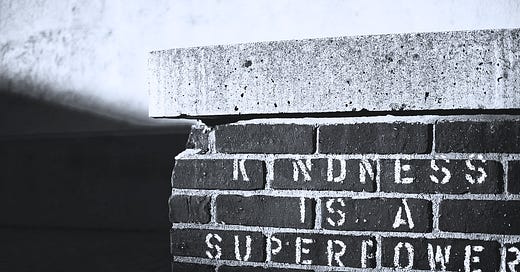
Think about the last time you were complimented by someone you respected. How did you feel?
Now think about the last time you could have complimented someone but didn’t. Why didn’t you?
This is a fundamental contradiction. We want praise, but we are reluctant to give it to others. We seek validation, but we are reluctant to offer it. The reasons for this vary. Sometimes we just feel uncomfortable complimenting others. Maybe we worry we will come across as disingenuous, or that no one will care.
There have been a lot of studies about how praise affects children, but we give it less importance when we reach adulthood. We assume that once we grow up, it no longer matters. But humans crave connection and appreciation. We want recognition for our efforts. We want to hear others say, "I see you. I see the work you're doing, the impact you’re having, and I value it."
What if we all spent a week praising others and thanking them for their work?
Effectively recognizing someone
I once worked with a leader who spent most of his time acting unhappy with our work. I believe in constructive dissatisfaction, but teams were killing themselves to achieve difficult goals. No matter how much we accomplished, he just never seemed satisfied. If we moved a metric by 5 percent, he would ask why we hadn’t moved it by 10 percent. It felt like we were all on a treadmill, with no end in sight—and no reward for our success. People responded to this in two ways. One group constantly tried to win his favor by working harder and harder. Another group just disengaged. He was so parsimonious with his praise that it felt like a no-win situation. A little bit of appreciation could have gone a long way toward keeping everyone on board.
It is easy to find flaws and criticize others, but it's much harder to specifically and openly compliment someone. However, praise is crucial to sustaining morale and making your team feel valued.
One 2009 McKinsey study cites that non-financial incentives mean as much as, or even more than, financial incentives when motivating teams. While this study focused on praise from managers, appreciation from coworkers is equally meaningful.
When someone makes a contribution that you appreciate, you have an opportunity to call it out. But effective praise is about more than just saying, “Good job.” The best way to compliment someone is to focus on something they did that had impact and meaning.
To start, ask yourself these three questions:
Keep reading with a 7-day free trial
Subscribe to Perspectives to keep reading this post and get 7 days of free access to the full post archives.




